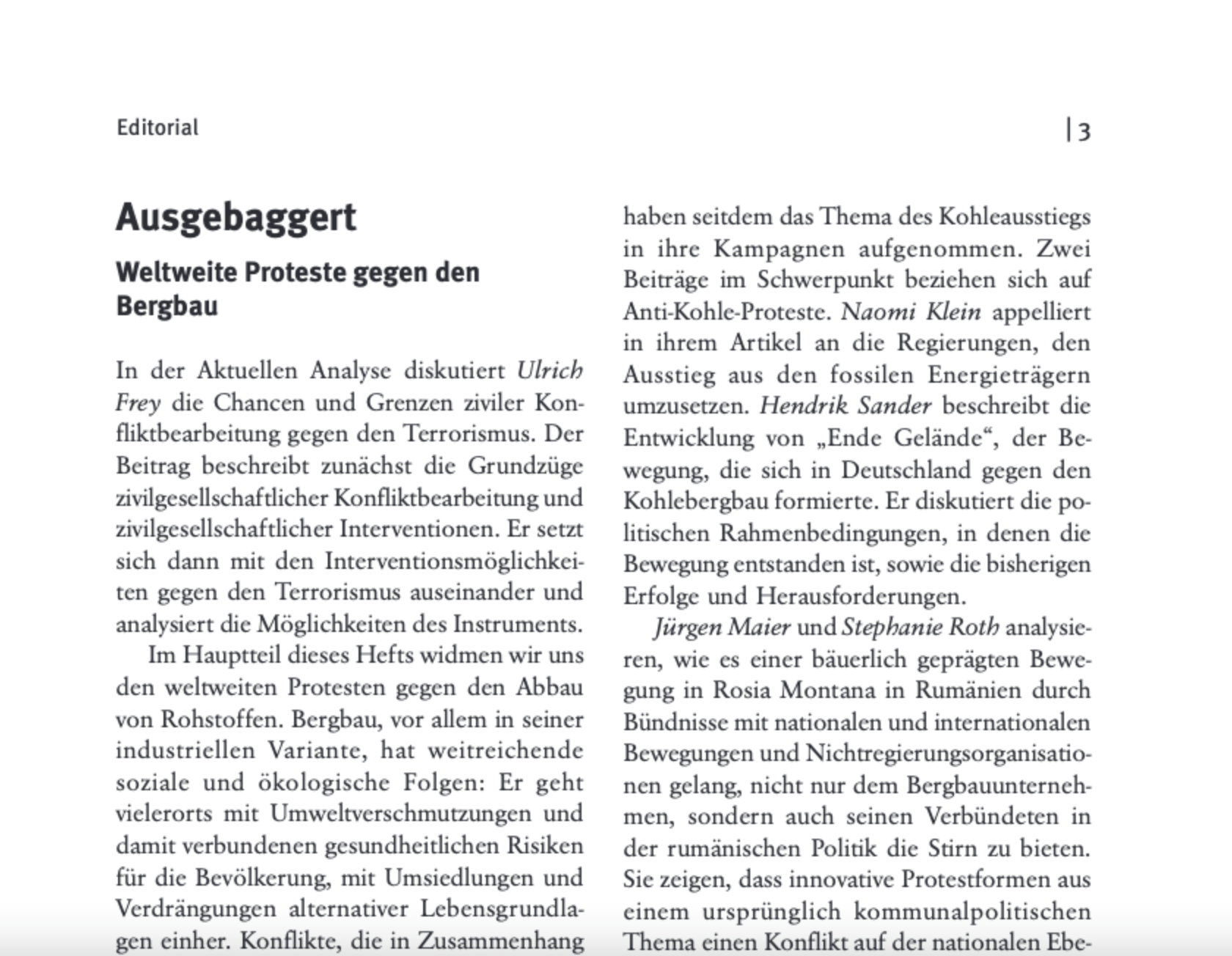︎

Melanie Müller
German Institute for International and Security Affairs (SWP)
Melanie Müller is a Senior Associate with a focus on Southern Africa at the German Institute for International and Security Affairs (Stiftung Wissenschaft und Politik, SWP) in Berlin and head of the research project „Approaches for Transnational Governance of Sustainable Commodity Supply Chains”. Melanie Müller has conducted research in various countries of the SADC region as well as in Ghana and Niger and published on the political and socioeconomic developments in Southern Africa, as well as on migration and on resource governance. Before joining SWP in 2017, she worked as a research associate and lecturer at Free University of Berlin and as a consultant for public and private actors with a focus on resource governance. She wrote her PhD about the impact of international conferences on local political actors with a focus on the UNFCCC conference in Durban/South Africa.
MORE ABOUT MELANIE MüLLER >Nora Aboushady, Tilman Altenburg, Inga Carry, Jann Lay, Melanie Müller, Mark Schrolle, Frauke Steglich, Lea Strack, Tevin Tafese, Rainer Thiele
The European supply chain law is coming after all – What can we make of the compromise?

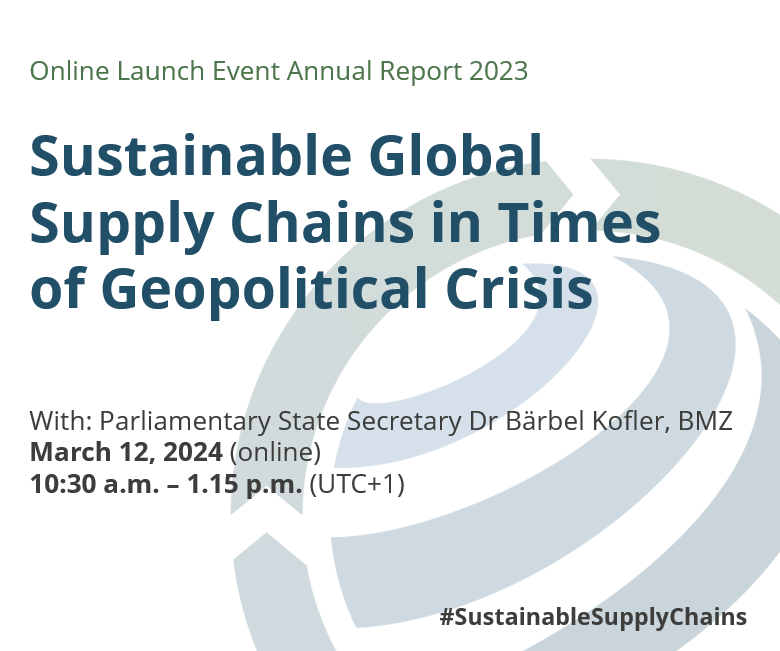
Jann Lay, Tilman Altenburg, Melanie Müller, Tevin Tafese, Rainer Thiele, Frauke Steglich
Europäische Lieferkettenregulierung nicht aufhalten! Sie ist ein wichtiger Schritt für eine bessere Globalisierung
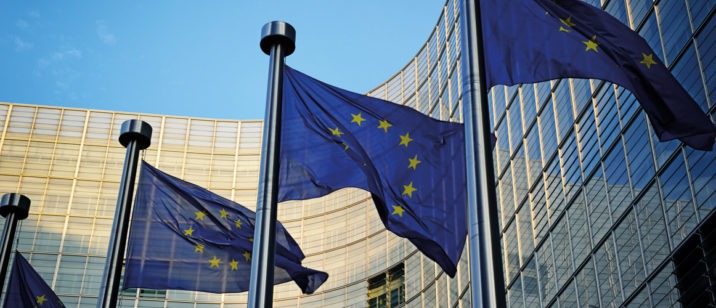
2023
“Sustainable global supply chains in times of geopolitical crises” Annual Report 2023
The overarching topic of this year's report is "The Role of Geopolitics in Global Supply Chains", highlighting ways in which recent geopolitical and geo-economic developments are shaping and influencing current debates and policy processes around global supply chains (GSCs). Following...
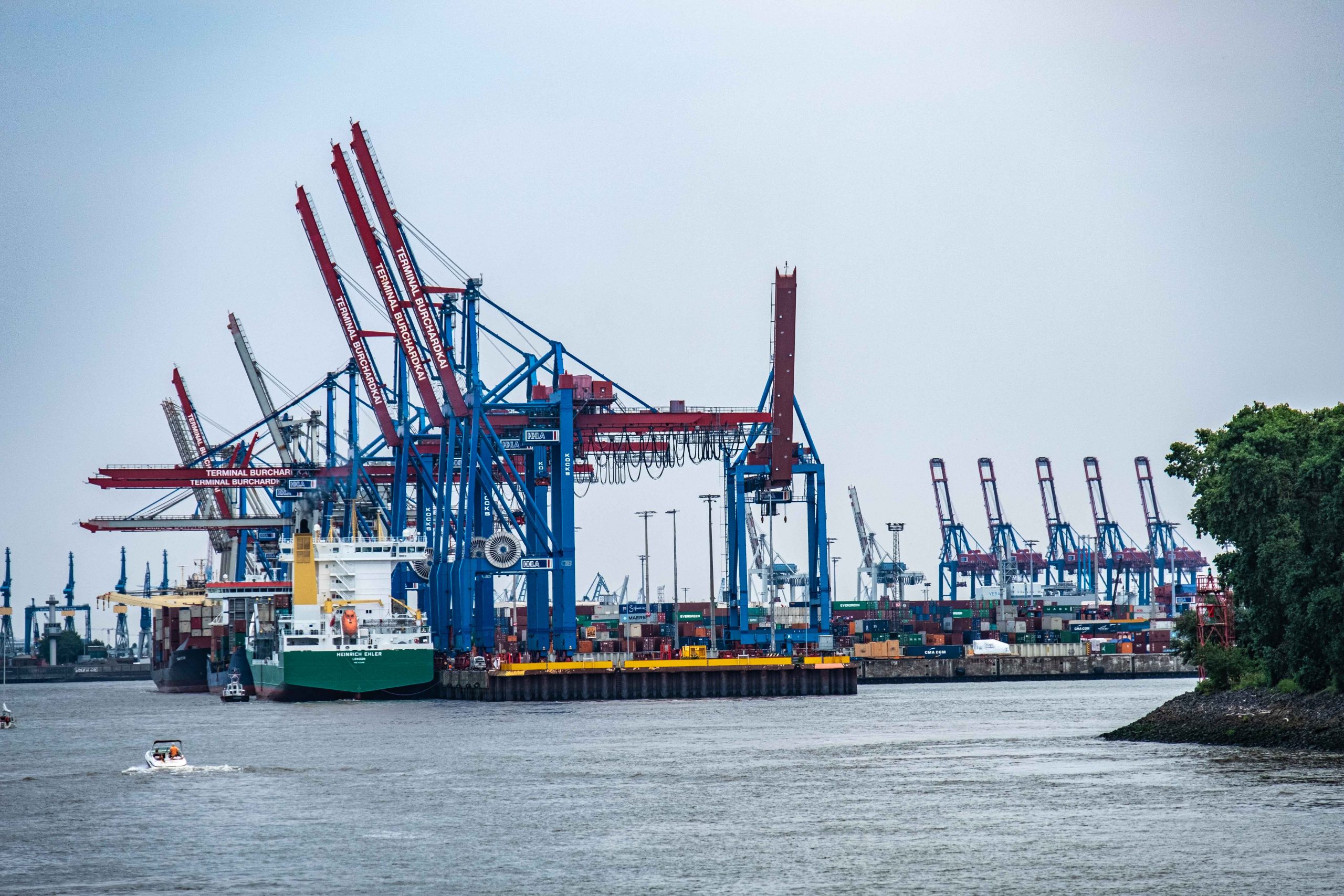
2023
Inga Carry, Melanie Müller
Addressing Environmental Injustices in South African Artisanal Gold Mining
Around 30,000 artisanal miners (Zama Zamas) work in and around active and abandoned mines in South Africa. However, weak governance and oversight of illegal mining have resulted in lawlessness, insecurity, and hundreds of deaths over the years. These mining sites have become some of the most violent...
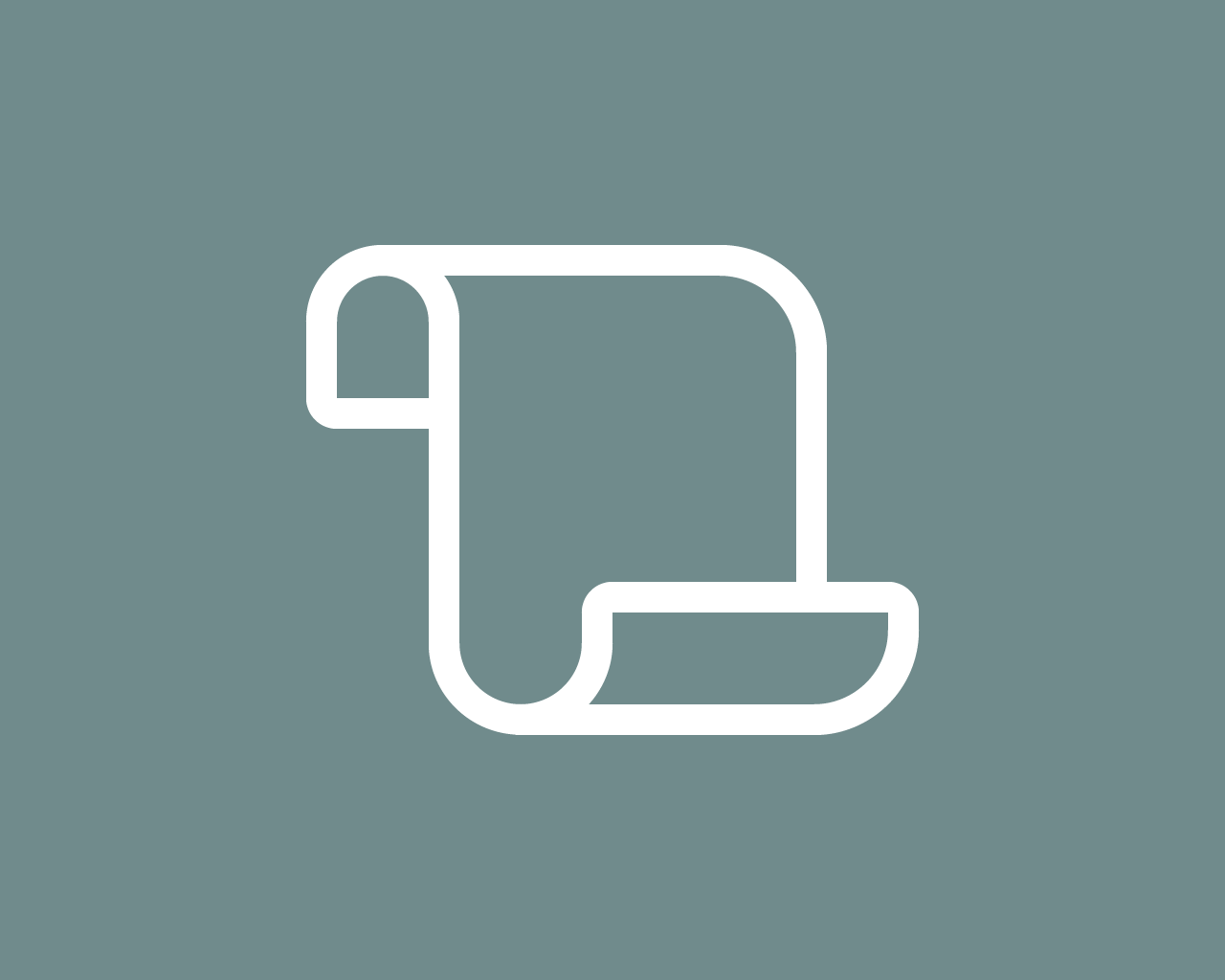
2023
Inga Carry, Melanie Müller, and Nadine Godehardt
The Future of European-Chinese Raw Material Supply Chains
When it comes to being supplied with raw materials, Europe faces a number of challenges. These include the diversification of European supply chains, the implementation of effective sustainability standards, and the reduction of strategic dependencies on China. What will European-Chinese raw mater...
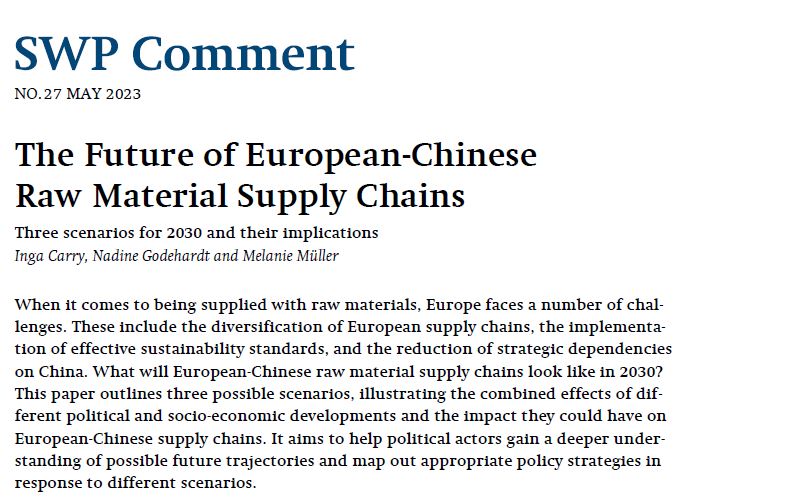
2023
Svenja Schöneich, Christina Saulich, and Melanie Müller
Traceability and foreign corporate accountability in mineral supply chains
Industrialized economies in the EU depend heavily on imports of minerals. The extraction and parts of the transport and processing of these minerals take place in the Global South and often bear high human rights and environmental risks. A lack of traceability in mineral supply chains makes it parti...
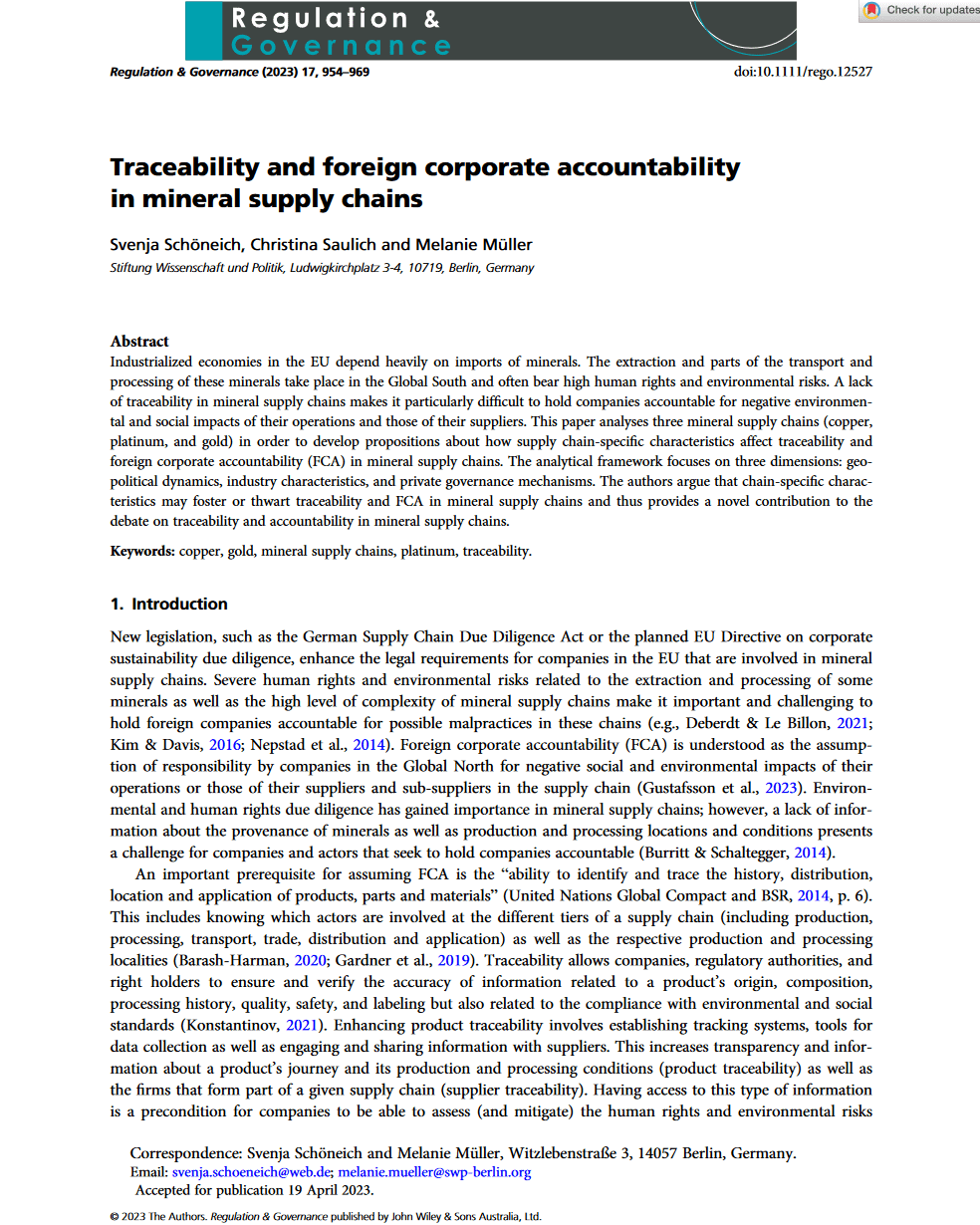
2023
Melanie Müller, Christina Saulich, Meike Schulze, and Svenja Schöneich
From Competition to a Sustainable Raw Materials Diplomacy
German and European businesses are highly dependent on metals. Demand for these raw materials is expected to grow even further as they will be needed for the green energy and electric mobility transition, digitalisation and other emerging technologies.
Geopolitical developments influence securi...

2022
Melanie Müller, Christina Saulich, Meike Schulze
Public-Private Alliances for Sustainable Commodity Supply Chains
The promotion of public-private cooperation in resource-rich countries of the Global South can serve as a flanking measure that strengthens the impact of supply chain laws. The case of the South African mining sector in its struggle against Covid-19 shows that close cooperation between companies, th...

Bernice McLean and Melanie Müller
Disruptions to global supply chains in the wake of the COVID-19 pandemic

2021
Günther Maihold, Melanie Müller, Christina Saulich, and Svenja Schöneich
Responsibility in Supply Chains – Germany’s Due Diligence Act Is a Good Start
On 3 March, the Federal Cabinet adopted an act on corporate due diligence in supply chains. This represents an important step towards German businesses assuming full and proper responsibility for the supply chains associated with their goods and services. The move puts Germany in a group of European...
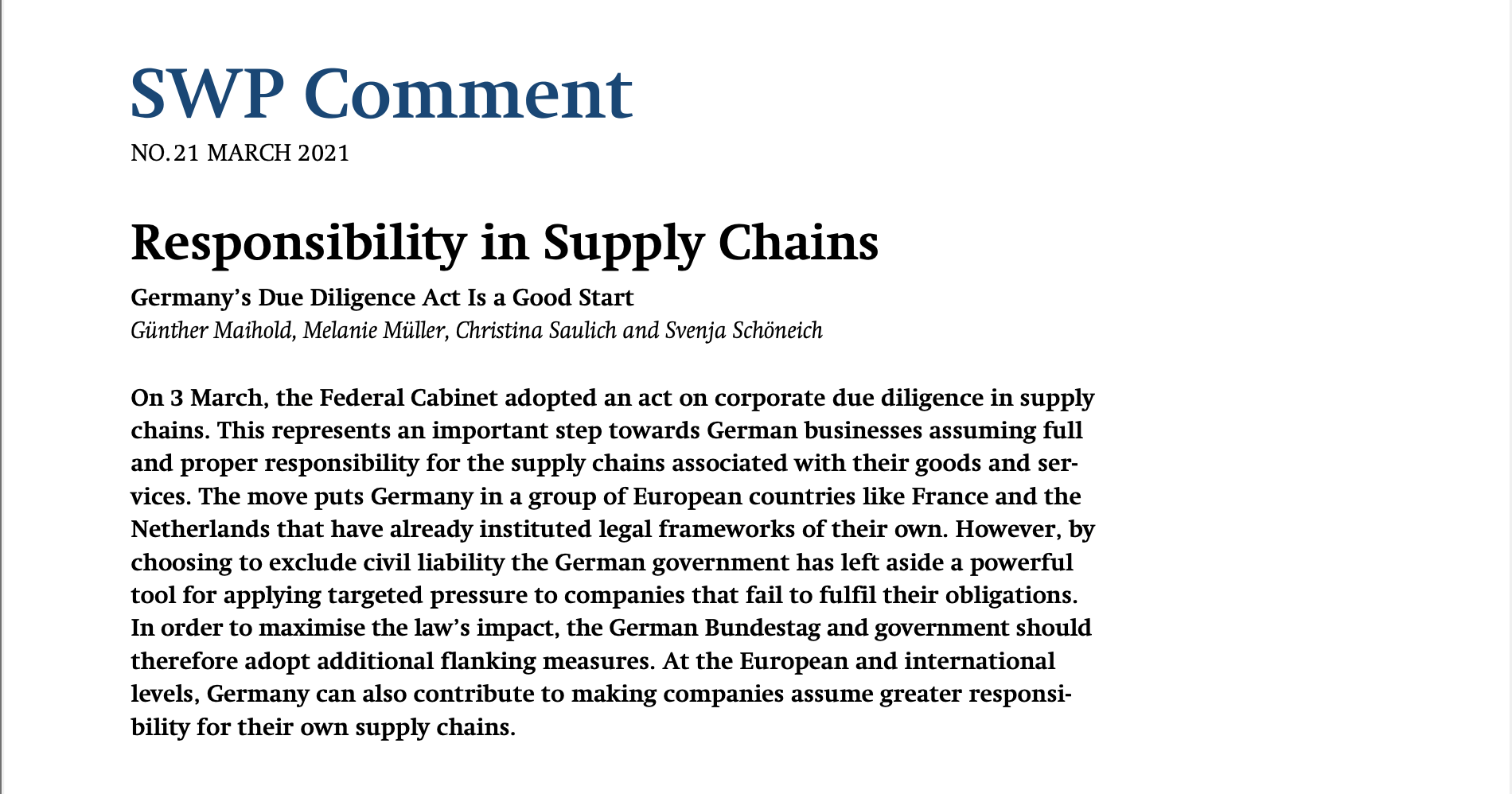
2020
Melanie Müller
Versorgungssicherheit: Marktdynamiken und Machtverschiebungen einplanen
Die Covid-19-Pandemie und der von ihr verursachte Einbruch des globalen Handels haben in verschiedenen Weltregionen eine Debatte über Abhängigkeiten von globalen Lieferbeziehungen entfacht. Mittlerweile deuten sich geographische Machtverschiebungen in Lieferketten an. Noch ist ungewiss, wie sich d...
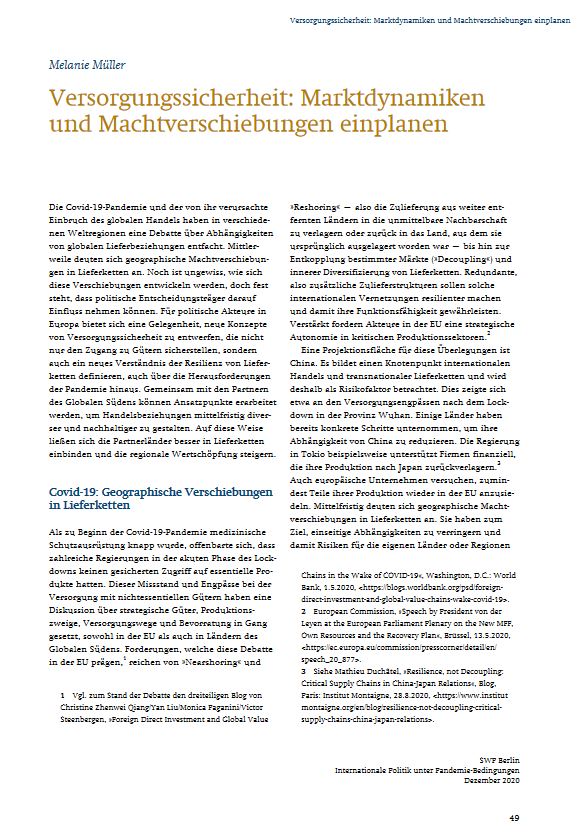
2018
Melanie Müller
Menschenrechtliche Verantwortung beim Abbau von metallischen Rohstoffen am Beispiel von Kupfer
Die vorliegende Studie untersucht, wie deutsche Unternehmen im Kupferbereich über die Herkunft ihrer Rohstoffe sowie über ihre Menschenrechtsstandards berichten. Die Studie geht dabei in fünf Schritten vor: 1. Einführung in die Thematik der Unternehmensverantwortung in globalen Lieferketten; 2. ...
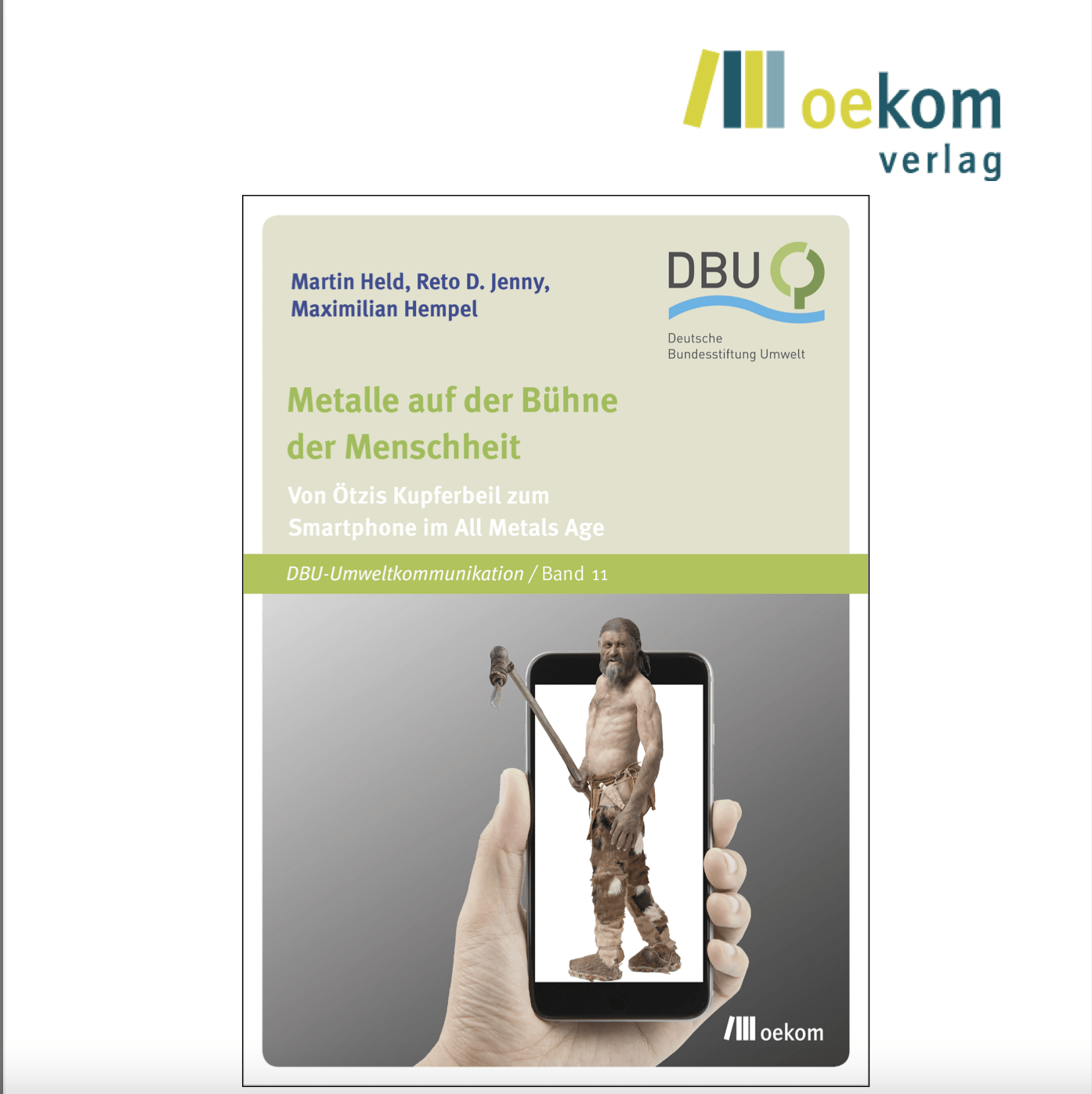
2017
Melanie Müller
Deutsche Kupferimporte: Menschenrechtsverletzungen, Unternehmensverantwortung und Transparenz entlang der Lieferkette
Die vorliegende Studie untersucht, wie deutsche Unternehmen im Kupferbereich über die Herkunft ihrer Rohstoffe sowie über ihre Menschenrechtsstandards berichten. Die Studie geht dabei in fünf Schritten vor: Das erste Kapitel führt in die Thematik der Unternehmensverantwortung in globalen Lieferk...
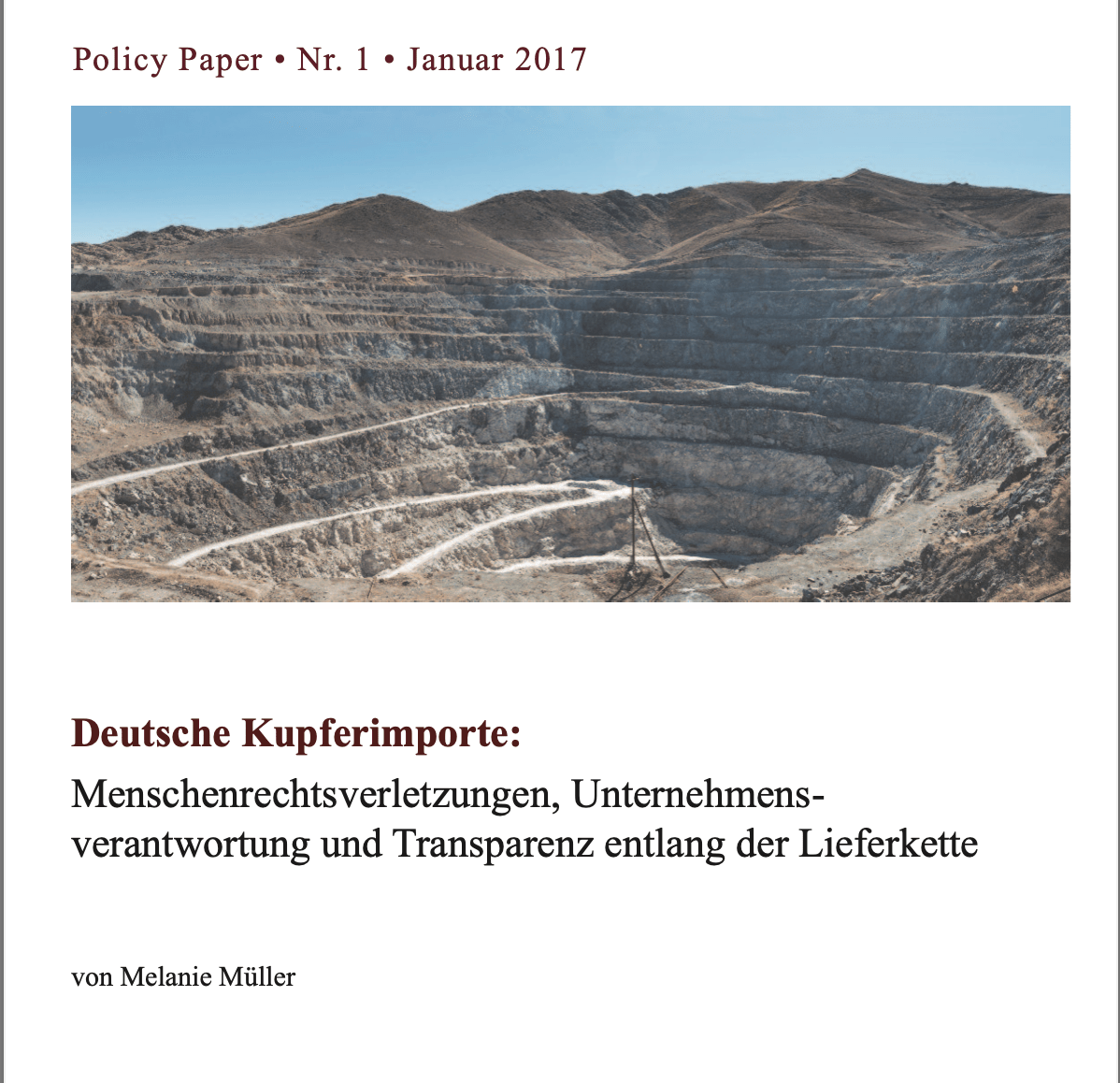
2017
Melanie Müller, Bettina Engels, and Kristina Dietz
Ausgebaggert: Weltweite Proteste gegen den Bergbau
Editorial: In der Aktuellen Analyse diskutiert Ulrich Frey die Chancen und Grenzen ziviler Konfliktbearbeitung gegen den Terrorismus. Der Beitrag beschreibt zunächst die Grundzüge zivilgesellschaftlicher Konfliktbearbeitung und zivilgesellschaftlicher Interventionen. Er setzt sich dann mit den ...
